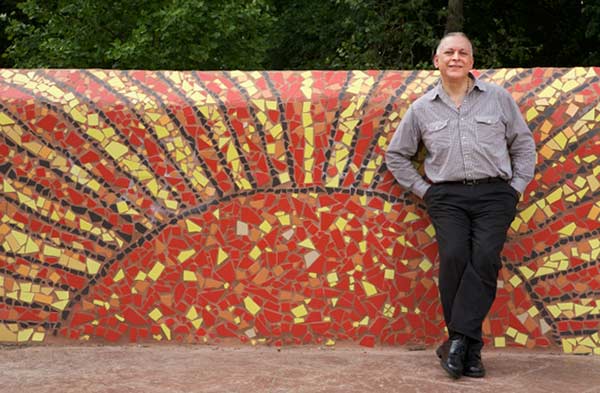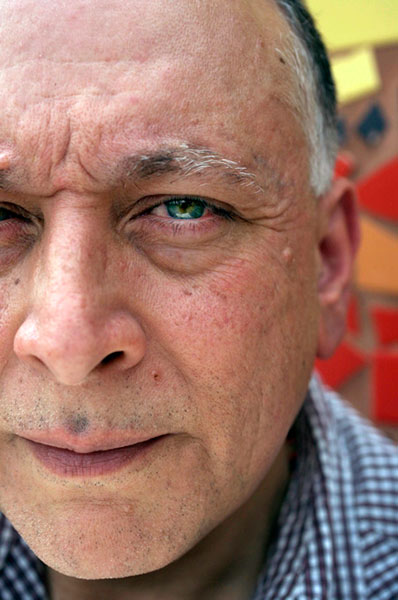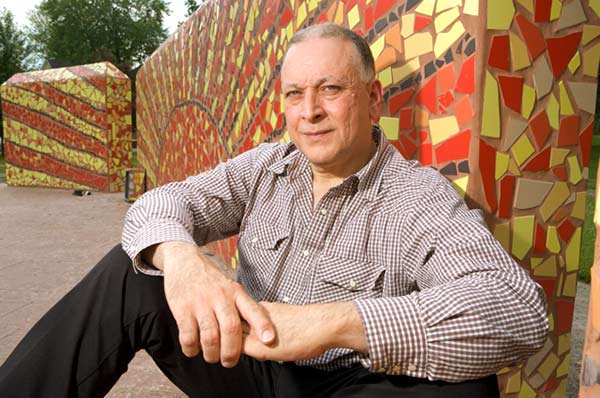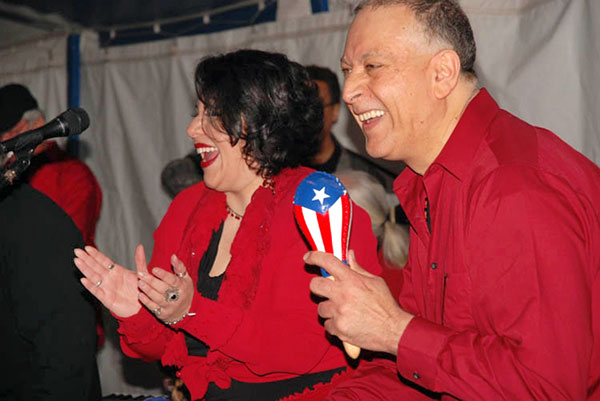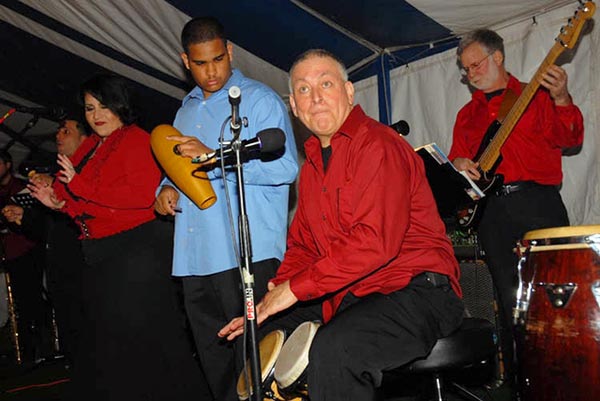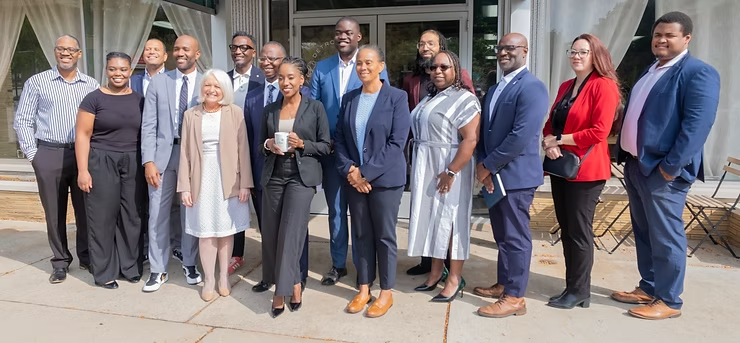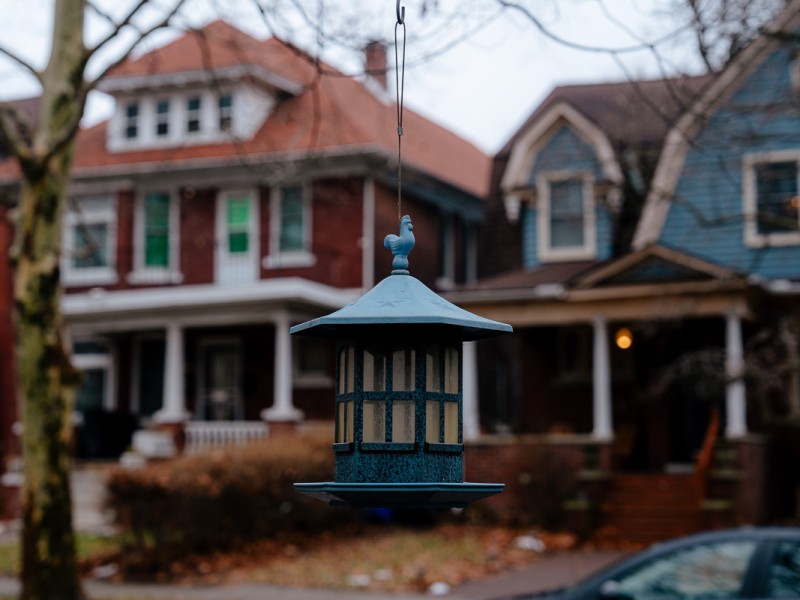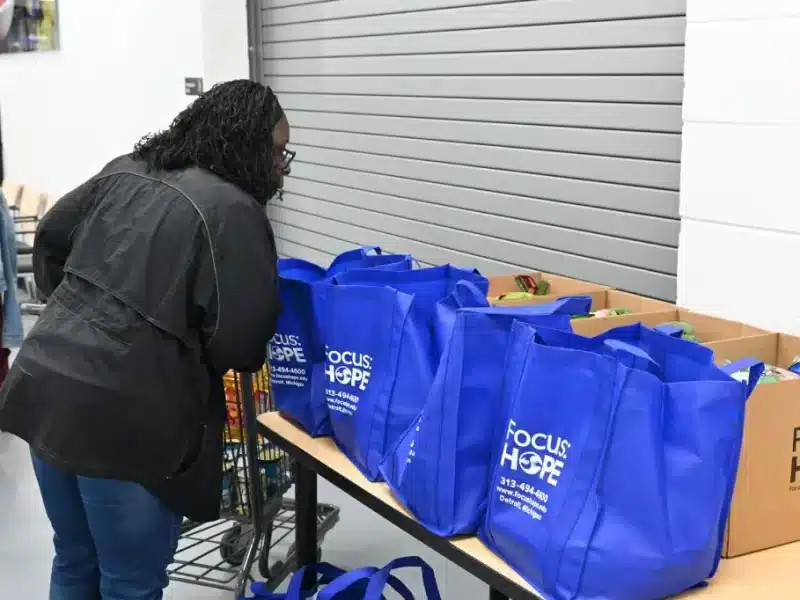Bomba king Osvaldo ‘Ozzie’ Rivera: A Motown oracle for modern times
The line between Ozzie Rivera’s role as community leader and artist is blurry, but who would draw such a line anyway? The Bomba percussionist and Southwest Detroit leader talks with us about Detroit, its spirit, its politics, and its future.
The first thing you notice about Osvaldo “Ozzie” Rivera is the eyes. They are light hazel green with a faint tinge of blue. They are the eyes of an old soul emblazoned with the fire of youth. They are the eyes of an oracle.
But, you won’t find this Motown native son sharing his revelations high atop Mount Parnassus. You are more likely to find him in Clark Park, at the Arab American Museum or somewhere else culturally relevant, involved in an intellectual discussion with some fortunate, wide-eyed recipient.
Rivera works for the State of Michigan, but you can best describe his occupation as renaissance man.
Oracle? Renaissance man? Which is it? To hear his colleagues tell it, it is a little of both.
“He wears many hats — historian, educator, activist, musician. … He has always been a leader, even back when he went to St. Vincent’s,” says fellow community activist and director of Race Relations and Cultural Collaboration at New Detroit, Angelita Aespino.
Ozzie the activist and historian
Rivera was born in Puerto Rico and raised in southwest Detroit. He was a founding member of Latino en Marcha Leadership Training Program at Wayne State University. This group was the predecessor to the prestigious Center for Chicano-Boricua Studies.
He was also a member of the Young Lords. “In New York, I hooked up with the Young Lords. They were loosely modeled on the Black Panther Party. Cha Cha Jimenez, who was a cell mate of Fred Hampton, started The Young Lords,” says Rivera. “Jimenez organized the Chicago-based gang to become more political. The Young Lords had thousands of followers.”
As a historian, he has presented countless talks for local and national audiences. He was recently a featured voice in Regional Roots: The Birth and Evolution of Detroit and its People. This documentary by One of Us Films and the Detroit Orientation Institute explores the immigrant experience as an introduction to the Detroit region.
Like many baby boomers, Rivera worked diligently for social change in the 1970s. However, his dedication has remained constant. He has impacted community and social change through key positions with ACCESS (Arab Community Center for Economic and Social Services), Latino Family Services, Wayne County Community College and Madonna University. Recently, Wayne State University School of Social Work Alumni Association honored him as “Citizen of the Year.”
Ozzie the showman
His community activism is intricately intertwined with his role as an artist. With several acts to his credit, including Bomba and Orquesta La Inspiracion, he is a stellar percussionist and a staple on Detroit’s music scene. His influences include Carlos Santana, Jose Feliciano, El Gran Combo and Ismael Rivera.
“I took up the bongos at age 16, even though I was surrounded by music and musicians my entire life,” he says.
Rivera deftly uses art and history to impact social change. He was the founding member of Casa de Unidad, which held the highly successful “Unity in the Community” in Southwest Detroit’s Clark Park. He follows that tradition with one of his newer undertakings, CLAVE — Community of Latino Visionaries and Artists.
Rivera sees music and community as closely related entities. “In its more fundamental stages, good music and good lyrics reflect the culture of a people. We know that culture is dynamic,” Rivera says. “Even Motown, it touched a nerve that was culturally and historically important. The best music and culture has a universal appeal.”
Rivera has been highly successful at tapping into the universal appeal of the music known as bomba. This African-influenced folk music genre of Puerto Rico is one of the oldest, dating back to the 1680s. It was played at the sugar plantations on Saturday nights and holidays. Dance is an integral part of the music, and dancers move their bodies to every beat of the drum. For many, it was also a way to worship traditional African deities. The music has been credited with helping the people deal with the hardships and oppression of slavery.
This parallel between struggle and art informs much of Rivera’s work. “There is a grittiness that creates a vibrant musical culture. Detroit has that spirit. Good music comes from struggle,” Rivera says.
Ozzie the leader
While he celebrates the city’s artistic offerings, he is disappointed by the city’s political consciousness. He is particularly concerned by how Latinos are often rendered invisible in a city so strongly dominated by the black/white paradigm.
“Historically, there have never been a large number of Latinos in the city. Mayor Archer had many Latinos in his administration,” he says. “People recognized them as black but not as Latino.”
Latino contributions to the city have been overlooked, he says.
“A lot of national leaders have roots in southwest Detroit. They have not been appreciated. Many of these people are family members and people that I have grown up with.”
He specifically mentions national players like Caesar Chavez’s successor, Arturo Rodriguez, who was trained in the Detroit-area, and Luis Resto, who wrote the Oscar winning tune from Eminem’s Eight Mile.
He is particularly adamant about the lack of local attention to Cecelia Munoz. “The immigration adviser to the Obama administration is Detroit-born Cecelia Munoz. She is the director of government relations between the Obama administration and all governmental agencies,” Rivera says. “There’s something unique about Detroit that doesn’t acknowledge the accomplishments of its players on the national field.”
Politics aside, Rivera’s optimism is clear. “When we talk about where Detroit is going you have to understand the past. He has been out front serving the community. His way of serving is by being directly involved,” says local filmmaker and senior program associate at New Detroit, Marshelle
Montgomery. “He brings knowledge to the table that enables him to discuss solutions. He is a real leader.”
Ever the leader, Rivera delves right into the heart of the matter when asked about the importance of art in Detroit. “I saw a quote I like but I am not sure who said it. Three hundred years from now, the society will never remember the stockbroker. They will always remember the artist and the musician.”
Spoken like an oracle.
Osvaldo Rivera will perform as part of the Southwest Detroit Latin Super Session at the Concert of Colors, Metro Detroit’s 18th Annual Diversity Festival. He’ll take the stage on Sunday, July 18 at 6:15 p.m. at the Max M. Fisher music Center. Check the website at www.concertofcolors.com or call (313) 624-0215 for more information.
Rhonda Welsh is a Detroit-based poet and freelance writer. Send feedback here.
